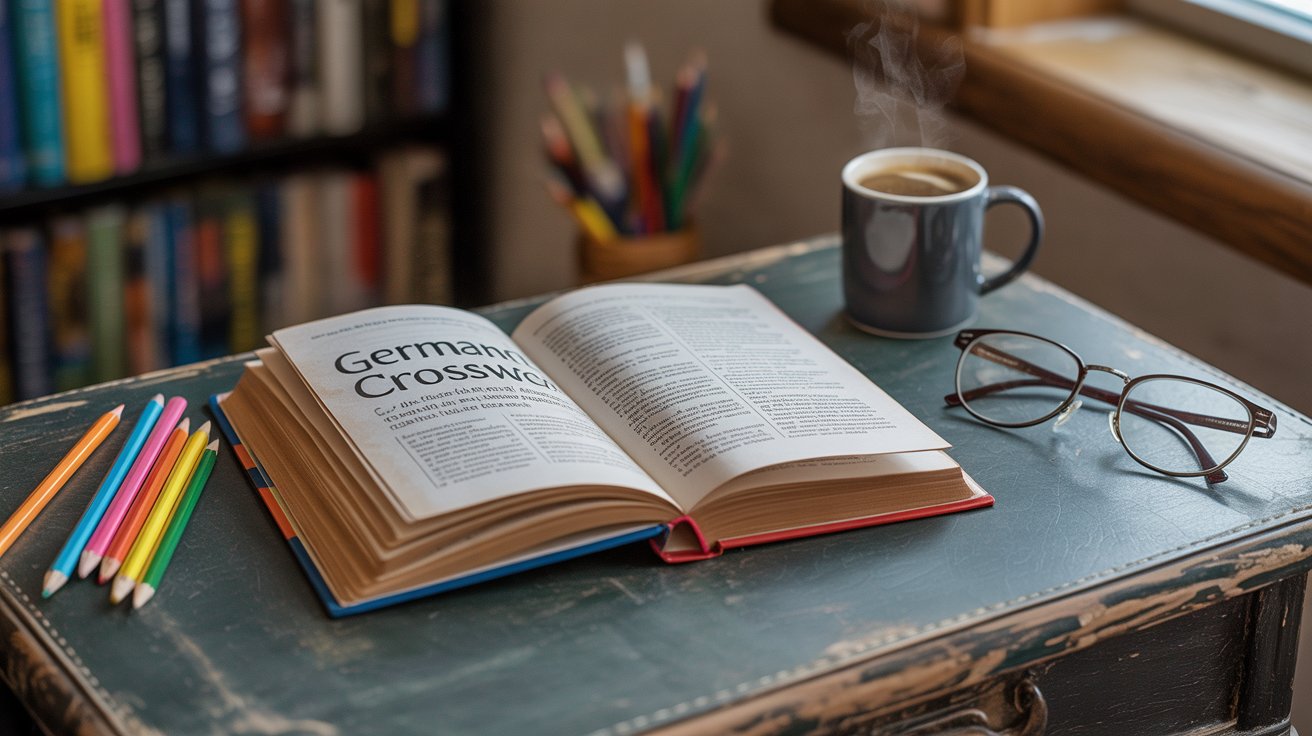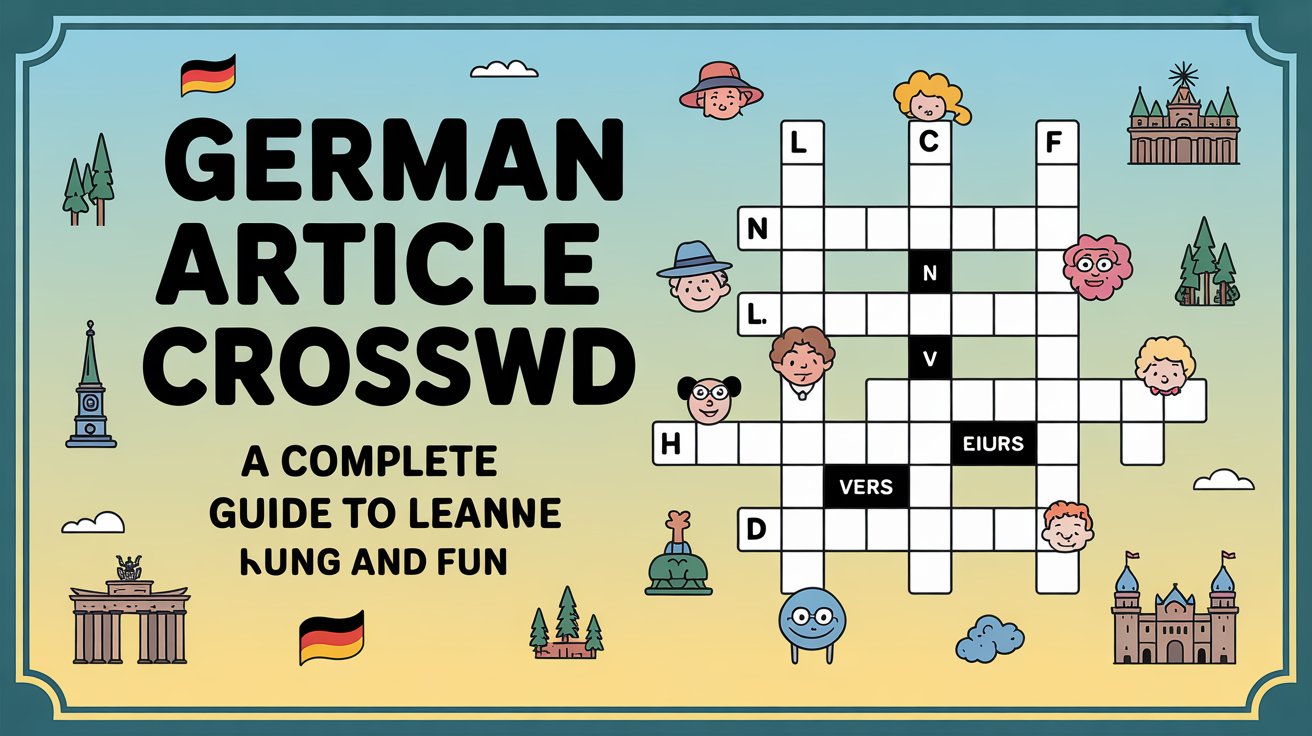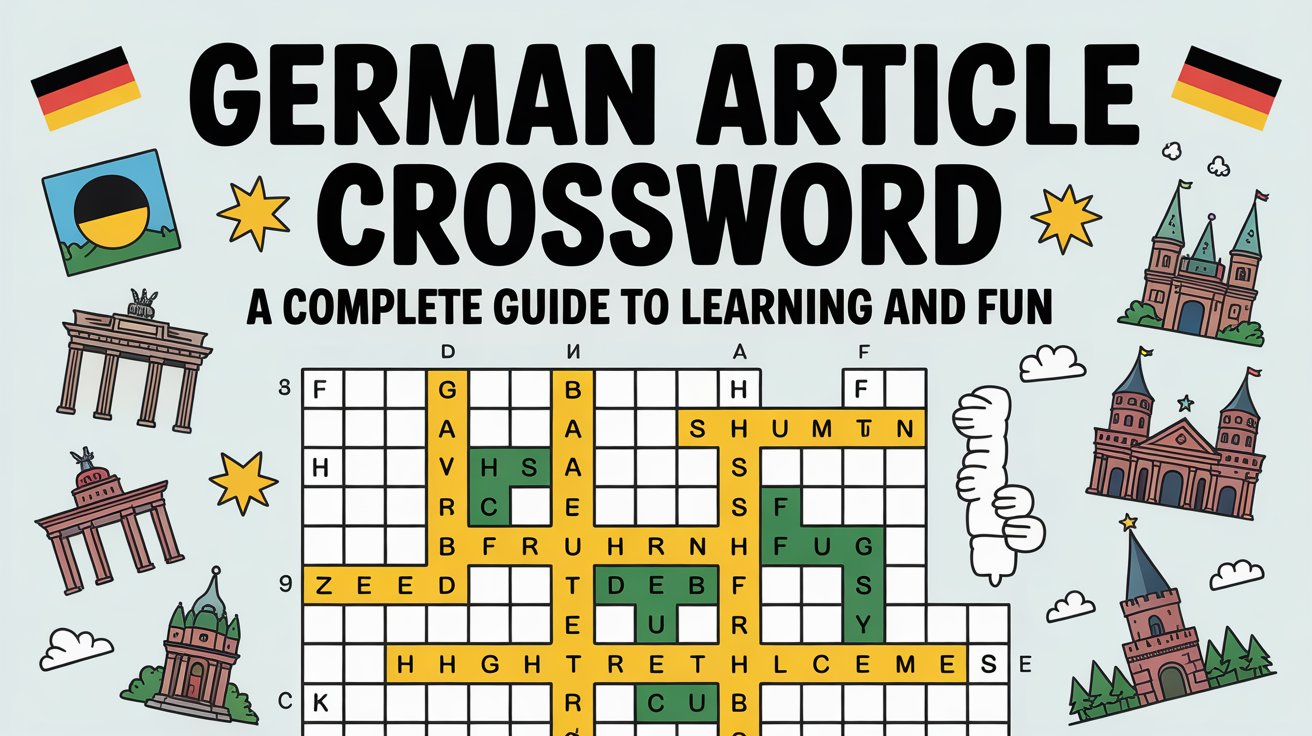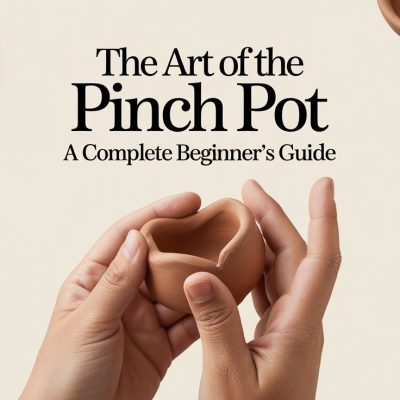Introduction
Learning German can sometimes feel like climbing a steep mountain. Between the tricky grammar rules and endless vocabulary, many learners get stuck at the same spot: German articles. “Der, die, das” might sound simple at first, but choosing the right one often feels like guessing in the dark.
But what if learning these articles could be turned into a game? That’s where German article crosswords step in. They transform dry grammar practice into a fun puzzle-solving experience. Think of it like mixing brain training with language learning—both enjoyable and productive.
In this article, we’ll explore everything about German article crossword puzzles: what they are, why they work, and how you can use them to boost your language skills.
What Is a German Article Crossword?
A German article crossword is just like a regular crossword puzzle—but with a twist. Instead of filling in random words, you solve grammar challenges by pairing German nouns with their correct definite articles (der, die, das). It’s not just about spelling; it’s about reinforcing grammar rules in an interactive way.
Imagine being given the word Apfel (apple). In the crossword, the clue would be “___ Apfel,” and you’d need to know it’s der Apfel. This way, the puzzle pushes you to recall and apply knowledge in real time.
Why Are Articles So Important in German?
If English flows like a calm river, German feels more like a rocky stream—without the right “boat,” it’s hard to make it across. Articles in German act as markers that determine a word’s gender and case.
-
Der: masculine
-
Die: feminine
-
Das: neuter
Choosing the wrong article can change the meaning of your sentence or make it grammatically incorrect. That’s why mastering them early is crucial.
Breaking Down “Der, Die, Das”
Many learners find articles intimidating because they don’t always follow logic. For example:
-
Der Tisch (the table) – masculine
-
Die Lampe (the lamp) – feminine
-
Das Buch (the book) – neuter
There’s no clear logic to why a table is considered masculine while a lamp is treated as feminine. It’s something learners must memorize through repetition. German article crosswords make this process less boring by wrapping it into a puzzle format.
How Crossword Puzzles Help in Language Learning

Crosswords don’t just entertain—they also:
-
Boost memory: Recalling articles strengthens long-term memory.
-
Promote active learning: Rather than just reading, you engage by solving.
-
Build vocabulary: You learn new nouns along with their genders.
It’s like exercising your brain while sneaking in a language workout—similar to how a child learns faster when play is involved.
Different Types of German Article Crosswords
There are various formats, including:
-
Basic fill-in crosswords: Simply add the right article.
-
Mixed grammar puzzles: Articles plus cases like nominative, accusative, etc.
-
Picture-based crosswords: You see an image and fill in the article + noun.
-
Digital interactive puzzles: Online versions with hints and instant feedback.
Each type caters to different learning styles—whether you prefer visuals, words, or structured practice.
How to Solve a German Article Crossword
Solving these puzzles is straightforward, but here are some steps:
-
Read the clue carefully – Is it asking for nominative, accusative, or another case?
-
Recall the noun’s gender – Masculine, feminine, or neuter.
-
Apply the correct article – Fill in der, die, das accordingly.
-
Cross-check with other answers – Just like a standard crossword, one wrong entry can throw off the whole puzzle.
Over time, you’ll notice patterns that make article selection feel more natural.
Benefits of Practicing with Crosswords
Using German article crosswords has multiple advantages:
-
Improves accuracy in grammar
-
Reduces hesitation when speaking
-
Increases vocabulary retention
-
Makes learning fun so you stay motivated
Think of it like riding a bike. At first, you wobble a lot. But with practice, balance becomes second nature.
Common Mistakes Learners Make with Articles

Learners often stumble because they:
-
Memorize words without their articles
-
Forget exceptions to rules
-
Confuse similar-sounding nouns
-
Struggle with plural forms
For example, many think “die” always means feminine, but it’s also used for plurals. Crosswords help catch and correct these errors naturally.
Tips to Improve Accuracy in Articles
Here are some strategies that work:
-
Always memorize nouns together with their articles (for example, “der Tisch” instead of just “Tisch”).
-
Group nouns by gender to recognize patterns.
-
Try color-coding: use blue for masculine, red for feminine, and green for neuter.
-
Practice daily with puzzles to build consistency.
Small daily habits can make a big difference over time.
Using Crosswords in Classrooms and Self-Study
Teachers often use German article crosswords as warm-up exercises or homework tasks. They work great in classrooms because they encourage group discussions.
For self-learners, they’re equally powerful. You can access free printable puzzles or enjoy interactive versions online. Either way, they keep you engaged while reinforcing tricky grammar rules.
Digital vs. Paper Crosswords: Which Works Better?
Both have their perks:
-
Digital puzzles: Instant feedback, hints, and portability.
-
Paper puzzles: More traditional, no screen fatigue, and better for handwriting practice.
It’s like choosing between an e-book and a paperback—both give the same knowledge, just in different forms.
Creating Your Own German Article Crossword
Why not take learning into your own hands? Creating your own puzzle can be just as educational as solving one.
-
Pick 20–30 German nouns.
-
Add their correct articles.
-
Use an online crossword maker tool.
-
Share and solve with friends or classmates.
Designing puzzles forces you to double-check articles, which cements them in your memory.
Other Fun Games for Learning German Articles

If you enjoy crosswords, you’ll likely enjoy:
-
Memory card games with articles
-
Flashcard apps like Anki or Quizlet
-
Fill-in-the-blank worksheets
-
Word association games
The key is to mix learning with play—because when it’s fun, it sticks.
Success Stories: Learners Who Improved with Crosswords
Many language learners have shared how crosswords changed their approach to German. One student reported remembering over 300 nouns with correct articles in just three months. Another said puzzles gave her the confidence to speak without second-guessing every sentence.
The takeaway? Sometimes, playful learning is more effective than hours of rote memorization.
FAQs
1. What is a German article crossword?
It’s a crossword puzzle where clues involve filling in German nouns with their correct articles (der, die, das).
2. Are German article crosswords suitable for beginners?
Yes, they’re beginner-friendly and help learners memorize articles naturally while expanding vocabulary.
3. Can I find German article crosswords online for free?
Absolutely! Many websites and apps offer printable and interactive versions at no cost.
4. How often should I practice with crosswords?
Practicing every day is ideal, but even 2–3 sessions a week can greatly boost your accuracy.
5. Do crosswords help with cases like accusative or dative?
Yes, some advanced crosswords include cases, helping learners practice not just nominative articles but also accusative, dative, and genitive forms.
Final Thoughts: Making Grammar Fun
German articles may seem intimidating, but they don’t have to be. With tools like German article crosswords, you can turn confusion into clarity—while having fun along the way. Think of it as turning grammar into a friendly puzzle rather than a roadblock.
So, next time “der, die, das” leaves you scratching your head, grab a crossword. You’ll be amazed at how fast everything begins to fall into place.










